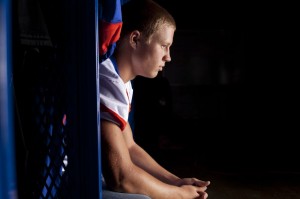 Parents and coaches are finally starting to understand the importance of keeping young athletes out of play after a concussion. A new study, published in the journal Pediatrics, has found that they may benefit from staying out of class, too. Most only need a few days off, but those with severe symptoms may need to take several months off from school and other cognitive activity.
Parents and coaches are finally starting to understand the importance of keeping young athletes out of play after a concussion. A new study, published in the journal Pediatrics, has found that they may benefit from staying out of class, too. Most only need a few days off, but those with severe symptoms may need to take several months off from school and other cognitive activity.
Specialists have known for years that concussion victims recover faster with cognitive rest, but until now they did not have the data to prove it. A new study found that the majority of young athletes who suffered a concussion were symptom free within 40 days, when given ample cognitive rest, but without cognitive rest it typically took 100 days or more for symptoms to subside.
The study was conducted by researchers at Boston Children’s Hospital. They followed 335 student athletes who had suffered concussions on the playing field. Their ages range from eight to 23 years old with an average age of 15.
When trauma to the brain occurs it triggers the release of chemicals, causing an imbalance in the brain, and concussion symptoms. It takes time and energy for the brain to restore itself to the proper chemical balance. Cognitive tasks, such as doing homework, reading, texting, and playing video games, take energy away from this process, delaying healing and prolonging symptoms.
How much rest a brain injured child or young adult needs varies from case to case. Study co-author Dr. William Meehan, says that all concussion victims are advised to take a complete break from cognitive activity for the first three to five days, then try some light cognitive tasks and see how it goes. If symptoms, such as headaches or dizziness come back, it is not time to resume activity. If light tasks are well tolerated, cognitive activity should be resumed gradually over a period of time.















